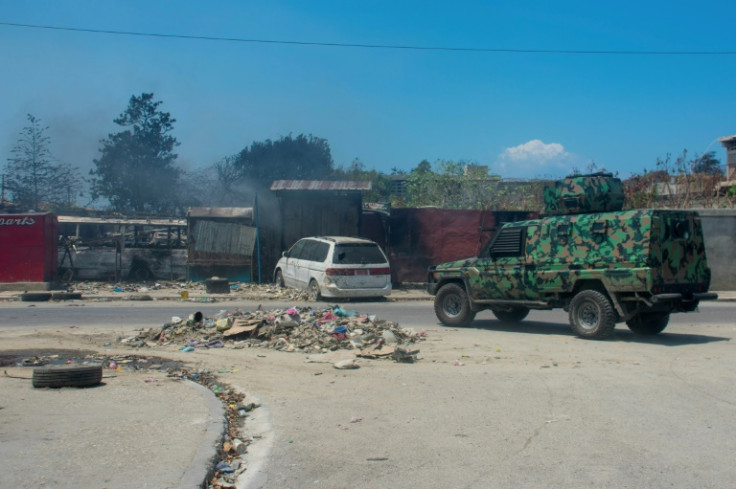
The U.S. conducted a new deportation flight to Haiti amid faltering efforts to stabilize the country's security situation and a trip by Secretary of State Antony Blinken to try to move forward with key issues including presidential elections.
The flight took place on September 6 and was reported by X user Thcartrwright, who tracks such events around the region. The user detailed that the flight followed a cancelled one from August 27 and headed to Cap-Haitien, in the northern part of the country, from Miami.
It was the first such flight since July, according to Adam Isacson, covering migration for the Washington Office on Latin America (WOLA) and despite calls throughout the year by advocates and organizations to refrain from doing so due to the deteriorated security situation.
Back in May, the United Nations' refugee agency (UNHCR) said Haitians being returned to the country may face "life-threatening risks or further displacement." Other organizations echoed the message after the deportation flight in May.
Sunil Varghese, Policy Director at the International Refugee Assistance Project (IRAP), called the decision "unconscionable" and said that, "to make matters worse, many of those aboard today's deportation flight likely were subjected to unfair, elevated standards to seek asylum in the United States due to recent Biden administration policies."
The situation in Haiti continues to be dire, as the Multinational Security Support (MSS) has so far failed to deter armed gangs controlling vast swaths of territory. Moreover, as funding dries up ahead of the mission's renewal, the Biden administration is considering turning it into a traditional United Nations (UN) peacekeeping operation.
The possibility, reported by the Miami Herald, comes about two months after the first group of Kenyan police officers arrived in Haiti to spearhead the security force. There have been challenges in securing voluntary contributions for the mission, which costs approximately $200 million every six months to operate, as well as showing any results for it.
The potential switch would address funding shortfalls, as such missions are typically financed through member nations' assessed contributions. Additionally, it would provide the mission with better resources, such as helicopters and medical facilities, which the current Kenya-led mission lacks. And allow for the deployment of military forces from other nations, an area where the U.S. has struggled to gain support under the current framework.
However, this transition would require approval from the UN Security Council, raising concerns about whether member states, particularly China and Russia, would back the initiative.
The Kenyan mission currently includes 400 police officers, with an additional 250 military and police officers from Jamaica expected to arrive soon. However, critics argue that even the initially projected 2,500 personnel would be insufficient to make a significant impact.
Speaking at Haiti's main airport last week, Secretary Blinken highlighted some progress on the political and security landscape, but said there is need for more "funding, personnel, to sustain and carry out the objectives of this mission."
"In a couple of weeks, we'll be at the United Nations for the General Assembly. I intend to convene a ministerial meeting to encourage greater contributions to help meet Haiti's security needs, its economic needs, its humanitarian needs, as well as to renew the mission's mandate, which expires in early October," Blinken said during a passage of his speech.
"In the long term, the United States is working to return Haiti to the path of growth and opportunity, including through a whole-of-government strategy that the United States and Haitian stakeholders have developed to prevent conflict and promote stability here in Haiti," he added.
© 2025 Latin Times. All rights reserved. Do not reproduce without permission.





